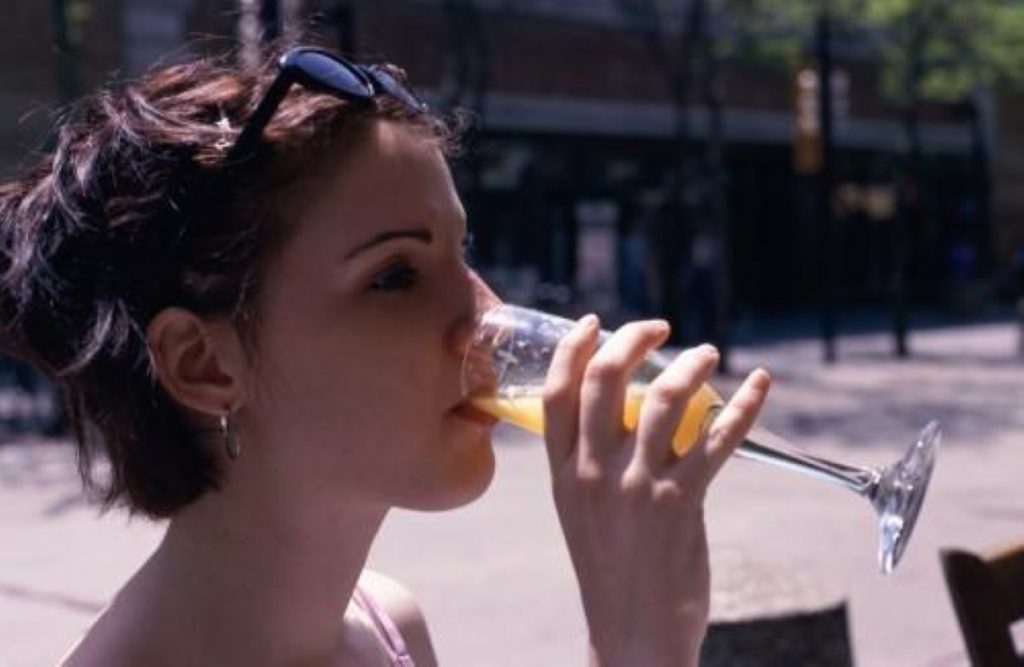Concerns about female binge drinking
Teenage girls are binge drinking more than boys for the first time, according to new figures.
In 2003, nearly a third (29 per cent) of 15 and 16-year-old girls admitted to binge-drinking, compared to 26 per cent of British lads.
Binge-drinking was defined as supping more than five alcoholic drinks in a row at least three times in a month.
Back in 1999, 33 per cent of boys confessed to binge drinking. The figure was 27 per cent for girls.


The European School Survey Project on Alcohol and Other Drugs (Espad) concluded British teenagers were among the worst binge-drinkers in Europe.
Binge-drinking was worse in Ireland, affecting 33 per cent of girls, compared to 31 per cent of boys, and the Isle of Man (30 per cent of girls to 26 per cent of boys).
France, Germany and other Western European countries were at the bottom end of most tables for the amount and frequency of alcohol consumed among teenagers.
Britain, it said, had some of the worst alcohol-related problems among teenagers in Europe.
The survey compared teenage drinking lifestyles in 35 countries, asking 100,000 European students, including 2,000 British students, for their responses.
Experts said the anything goes “ladette culture” and TV advertising directed at women were two of the causes for the epidemic.
Researchers from the University of the West of England said the prevalent binge-drinking problem among teenagers appeared to be a particularly British phenomenon.
Home Office Minister Caroline Flint said the Government was taking action to tackle the problem.
She outlined Labour’s Alcohol Harm Reduction Strategy which includes on-the-spot fines for selling alcohol to under-18s and a Christmas “blitz” on underage and binge drinking.
Mrs Flint said tackling alcohol and substance misuse by young people was a top priority of the Government.
“Our message to everyone – but especially to this vulnerable group – is that drugs and alcohol are harmful.
“We are working hard to tackle misuse of both drugs and alcohol.”
Paul Burstow, Liberal Democrat health spokesman, said teenage binge drinking in Britain was “out of control”.
“The Government’s alcohol strategy fails to get to grips with the binge culture.”
Geethika Jagatilaka of Alcohol Concern urged the Government to look at the underlying causes behind binge drinking and to act on them.
The survey also found British youths had one of the highest incidences of illicit drug use in Europe.
In 2003, 38 per cent (42 per cent of boys and 35 per cent of girls) said they used drugs.
This compares to 44 per cent in the Czech Republic, 41 per cent in Switzerland and 40 per cent in Ireland.
Mrs Flint acknowledged the report made “worrying” reading given the “relatively high” levels of cannabis use among schoolchildren compared to their European counterparts.
David Davis, Conservative Party Shadow Home Secretary, said Labour had lost the war on drugs by sending out mixed messages.
“The decision to re-classify cannabis to a class ‘C’ drug, which has been condemned by doctors and the Government’s own drugs tzar, will do nothing to reverse this dangerous trend.”
A Department of Health spokeswoman said: “Schools have a vital role to play, alongside parents and a wealth of agencies in educating and helping young people to protect themselves from the risks and harm of illegal drugs, alcohol and tobacco.”

